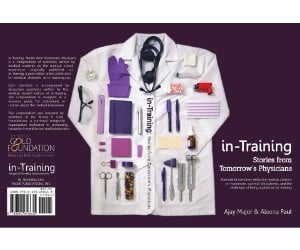
Having Children In Medical School
When my husband was in medical school, we had a social gathering for medical students ... Read more
Written by: Amy Rakowczyk
Published on: November 3, 2016
Getting into medical school was only the first hurdle. Learn more about how to be successful in medical school.

When my husband was in medical school, we had a social gathering for medical students ... Read more
Written by: Amy Rakowczyk
Published on: November 3, 2016

Central to the skillset of every physician is the differential diagnosis; this is the process ... Read more
Written by: Brent Schnipke
Published on: October 31, 2016

Republished with permission from here. Note: Interview conducted by medical student editor Evan Torline. Sometimes ... Read more
Written by: Evan Torline
Published on: October 26, 2016

I strolled into second year, fresh off the plane from my South American adventures and ... Read more
Written by: Adelle
Published on: October 17, 2016

It is not just nostalgia and excitement that grips me as I am nearing the ... Read more
Written by: Butool Hisam
Published on: October 11, 2016

By Amy Rakowczyk One thing is certain during medical school: your medical spouse is going ... Read more
Written by: Amy Rakowczyk
Published on: October 6, 2016

In early 2012, medical students Ajay Major and Aleena Paul started in-Training.org, a website dedicated ... Read more
Written by: Student Doctor Network
Published on: September 29, 2016

Republished with permission from here. Earlier in the summer, I was speaking with a friend ... Read more
Written by: Brent Schnipke
Published on: September 28, 2016

Follow these six steps to achieve Shelf Exam success
Written by: ExamGuru
Published on: September 21, 2016

Two days before interviewing at the medical school I now attend, I couldn’t get out ... Read more
Written by: SDN Staff
Published on: September 12, 2016

Recognizing the connection between lab work and surgery What surprised me the most during my ... Read more
Written by: Michael Mehlman
Published on: September 7, 2016

Updated September 6, 2021. The article was updated to correct minor grammatical errors. Expectations. The ... Read more
Written by: Amy Rakowczyk
Published on: September 1, 2016

Welcome back! I’m so excited to start my second year (and write about it, of ... Read more
Written by: Adelle
Published on: August 15, 2016

By Amy Rakowczyk, SDN Staff Writer When my husband and I arrived in our new ... Read more
Written by: Amy Rakowczyk
Published on: August 4, 2016

Poker, one may reasonably argue, is a game of sheer luck; he (or she) who ... Read more
Written by: Suhil Aggarwal
Published on: August 2, 2016

Central to the skillset of every physician is the differential diagnosis; this is the process by which ... Read more
Written by: Brent Schnipke
Published on: July 25, 2016

Central to the skillset of every physician is the differential diagnosis. This is a list of ... Read more
Written by: Brent Schnipke
Published on: July 19, 2016

Here’s a scenario I am asked about a lot: It’s a month before Step 1 ... Read more
Written by: Jason Ryan
Published on: July 18, 2016

Whew! It’s been a long year and I am itching for a much-needed, well-deserved break. ... Read more
Written by: Adelle
Published on: June 14, 2016